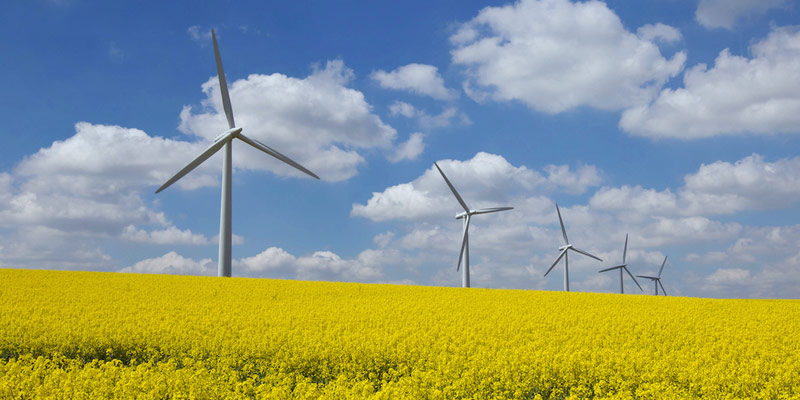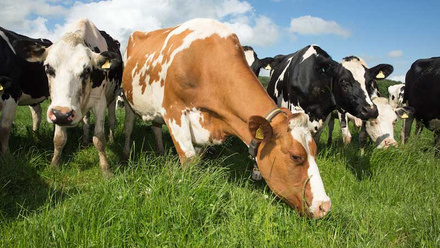Analysis: What the Climate Change Committee's 2024 report means for UK agriculture's net zero transition

The UK's independent adviser on climate change, the Climate Change Committee, has published its annual report providing insights into the UK's progress towards its net zero target.
Vicky Robinson, Head of Sustainability at the Agricultural Industries Confederation (AIC), analyses the findings and what they mean for UK agriculture's transition to net zero.
This Climate Change Committee progress report for 2024 matters because it is legally required under the Climate Change Act and provides an independent assessment of progress to reduce emissions and reach net zero in the UK.
Key points from the report - "Progress in reducing emissions 2024 Report to Parliament" - include:
- The UK successfully met its third carbon budget (2018-2022), having also met the first and second.
- These budgets are legally binding caps on greenhouse gas emissions emitted over five years and are considered to be the stepping stones to net zero.
- This third budget was met predominately by the phasing out of coal and the scaling up of renewable electricity, supported by clear and consistent policy messages to the market.
- The UK’s territorial emissions are now less than half the levels in 1990.
- To continue on this trajectory the UK's reliance on fossil fuels needs to be addressed with three-quarters of future emissions reductions needing to be outside energy supply.
- We are now five harvests away from our 2030 Paris Agreement commitment to reduce greenhouse gas emissions by 68% compared to 1990 levels, but we are off target with only a third of the emissions reductions required covered by a credible plan.
- Agriculture and land use is one of the areas identified as struggling with a lack of government policies.
2024 priorities
The Climate Change Committee report outlines 10 key priority actions for the remainder of 2024, which include:
- Support and incentivise the decarbonisation of industrial heat and the rapid transition to electric heat through the strengthening of the UK Emissions Trading Scheme.
- Accelerating the scale of tree planting and peatland restoration which needs to more than double to meet the UK’s targets of 30,000ha of new woodland per year by 2025 and 32,000ha of peatland restoration per year by 2026.
- The current third National Adaption Plan (NAP) is insufficient to meet the increasingly volatile weather events we are experiencing. Adaption must become a fundamental part of policymaking across all government departments.
- Although methane is not included in the analysis (as the provisional 2023 data does not include non-CO2 gasses) it is mentioned in the context of the Global Methane Pledge to reduce methane emissions by at least 30% by 2030 compared with 2020 levels (of which the UK is a signatory).
- For the UK to reduce its methane emissions by 30% the pace of reductions will need to approximately double with agriculture and waste sectors playing a key part. The UK Government announced plans to provide guidance and support to scale up methane-suppressing feed products in 2023 with AIC participating in an industry task force to discuss the next steps.
- For Scotland and Wales, providing continuity of funding for sustainable land management and detail on future agricultural funding was a key policy priority with tree planting a key priority for all three devolved administrations.
- Yet again the publication of a land use framework is on the priority policy list for the UK Government - something that AIC continues to strongly advocate for.
Message to government
Messaging to the newly elected UK Government is clear - it needs to make a clear commitment to the net zero transition backed up by rapid policy action and removing barriers to delivery.
This will improve the confidence of businesses to invest, thereby enabling the market to deliver what is required.
Watch the video below to find out more about the report.
The Climate Change Committee report was followed by an analysis of government data by the Energy and Climate Intelligence Unit (ECIU).
This showed that the slow progress on the delivery of agricultural policies to support decarbonisation and sequestration could see agriculture becoming the biggest emitter by the middle of the 2030s.
The seventh carbon budget advised by the Climate Change Committee is due in early 2025 and will be crucial to the trajectory of achieving the Government's net zero target.
This will set the legal limit for the UK's net greenhouse gas emissions from 2038-2042 and the agricultural sector will be key to supporting the delivery of this with the challenge of balancing emissions reductions alongside food production which will remain a priority.
As the trade association for the UK agricultural supply industry - representing businesses in the animal feed, combinable crops, crop protection and agronomy, fertiliser and seed sectors - AIC looks forward to continuing to work collaboratively with the Government and industry to strike this balance.





